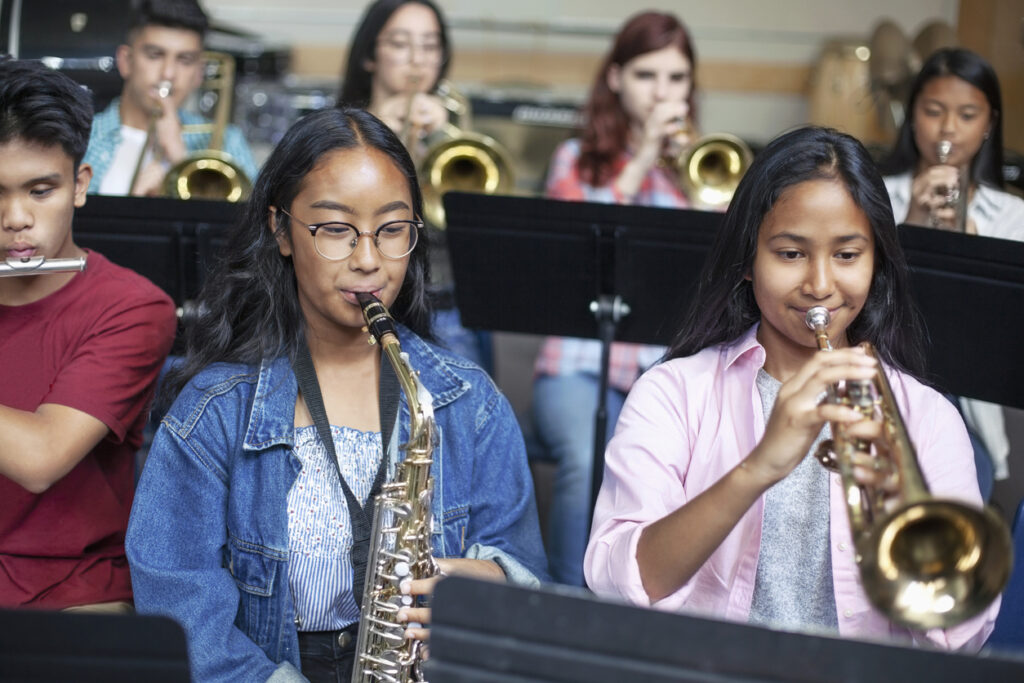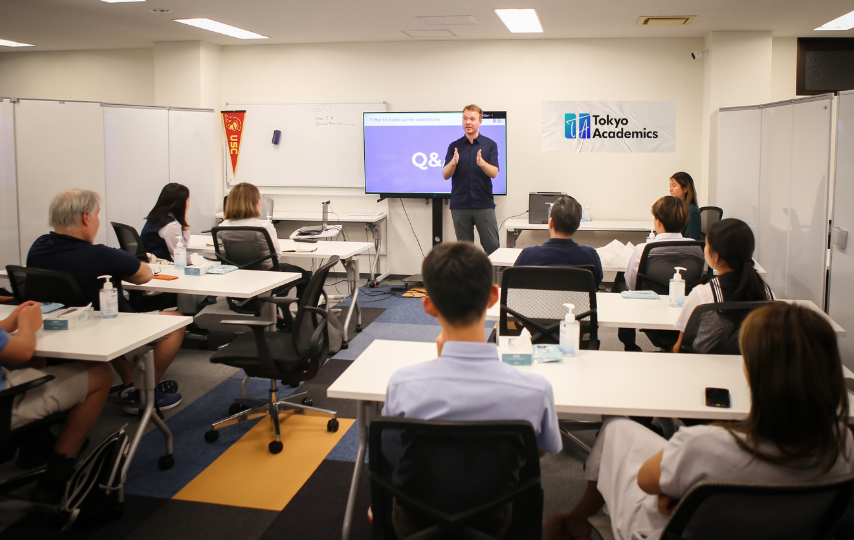5 Essential Factors for Choosing a Boarding School
The Ultimate Guide For Families In Japan
Boarding schools provide students with independence and vital skills, but for families seeking a well-rounded education, selecting the ideal one in an evolving landscape can be a daunting task. Below we outline five key factors to consider.
While Japan is home to many excellent international schools, open seats at these institutions can be hard to come by, leaving many families at a loss for options if their child aspires to prepare effectively for university abroad. As a result, boarding school emerges as a unique opportunity for a student to spread their wings and develop the skills essential for success in college. However, picking the right one in a rapidly changing admissions landscape can pose a unique challenge to families living here who may not be aware of what’s involved or what it takes to be admitted.
When should I start thinking about boarding school?
 © Photo by iStock: SolStock
© Photo by iStock: SolStockIt’s never too early to start considering the options. Parents should begin researching and contemplating boarding schools at least two or more years before the intended enrollment date. This allows ample time to understand the offerings of various institutions, visit campuses and prepare the student both academically and emotionally for the transition. If you already know you want to get started with this process, the best way to begin is to reach out to an expert to align on goals, build a timeline and set priorities.
Here are five insights curated by the Tokyo Academics Admissions Consulting team—led by Yale alum Dr. Jason Cody Douglass—and informed by their experiences with thousands of expat families in Japan.
1. Curriculum
 © Photo by iStock: SDI Productions
© Photo by iStock: SDI ProductionsAcademics will always be at the core of any boarding school, so understanding a school’s curriculum is essential to finding the right fit for your child. While many institutions offer globally recognized programs like the International Baccalaureate (IB) or Advanced Placement (AP), other schools take pride in charting their own academic pathways. While Choate Rosemary Hall loosely follows the AP curriculum, its students can also, for example, study astrophysics in a university research lab. Groton takes students to places such as Peru and Tanzania to learn in a global classroom. The Thacher School pairs every ninth grader with a horse in order to teach tenacity, self-confidence, humility and patience through experiential learning.
Takeaway: Can the school support your child’s diverse interests; for example, in both dance and computer science? Boarding schools offer customization opportunities where possible, but aligning education with your child’s strengths, weaknesses and interests is crucial. Be sure to review teacher feedback and report cards during your research.
2. Faculty
 © Photo by iStock: SDI Productions
© Photo by iStock: SDI ProductionsA boarding school experience is shaped by its faculty. Exceptional educators and mentors can positively impact your child in profound ways. This is true at any school but is especially true at boarding school, where many of the faculty often serve as dorm advisors or in other counseling roles. This means the person who is teaching you chemistry is also the one making sure your dorm room is clean and that you’re adjusting well to studying in a whole new country and cultural context. Pay attention to how a school emphasizes its faculty and the percentage of faculty who stay on campus.
Takeaway: With boarding school faculty playing a vital role in your child’s life, determining whom to trust is essential. Contact (by phone or email) the schools you’re considering and connect with the international student ambassadors who can candidly discuss this crucial aspect as well as many of the other factors on this list.
3. Resources for International Students
 © Photo by iStock: Prostock-Studio
© Photo by iStock: Prostock-StudioNot all boarding schools are equipped to support students from all parts of the world. Many boarding schools primarily serve students in their own state, city or county. This means that the resources necessary to accommodate your child’s needs as an international student may be lacking. Ask these questions:
- How is the school equipped to support families who are sending their children overseas?
- Has the school invested in programs and staff to support international families?
- Do they have dedicated support for English language learning and mastery?
- How can international parents remain involved in the day-to-day of the school and how will the school ensure they are kept in the loop?
Go beyond just the school webpage—inquire during virtual or in-person info sessions or reach out via email.
Takeaway: Parents should ensure the school is equipped to support a diverse student body through English language programs and resources for both Japanese natives and expat children. Proactive steps, like attending info sessions, emailing the school or speaking directly with current students from Japan, can provide a clearer picture of the school’s commitment to its international student body.
4. Extracurricular Activities
 © Photo by iStock: FangXiaNuo
© Photo by iStock: FangXiaNuoBoarding schools offer myriad extracurricular activities. Each school approaches this essential part of student growth and college preparation differently. Some schools like Northfield Mount Hermon ask students to become directly involved in the daily operations of the school. Others like The Lawrenceville School provide unique opportunities to engage in sustainability work. Some schools such as St. Paul’s have dedicated tremendous resources to support their arts, music and dance programs. Every school, including top schools including Phillips Exeter, will have their own approach to community service.
Takeaway: Extracurricular activities at boarding schools are platforms for students to explore, discover and develop essential life skills. For a student from Japan, it’s crucial to find a school that aligns with their interests and aspirations. Every school will have a list of clubs and activities on their website, but be on the lookout in particular for signature programs (often couched in fancier, school-specific jargon like Work360 or “Outings Week”).
5. College Preparation
 © Photo by iStock: skynesher
© Photo by iStock: skynesherBoarding school is ultimately about what comes next. The intellectual and personal development that happens at boarding school lays the foundation for a strong college application. Equally important is a student’s ability to identify the right colleges for them, build a competitive application profile and understand the complexities of the college application process. Here are some areas to investigate:
- What resources and personnel does a school provide to support a student with these components?
- Beyond the matriculation rate and list of schools, spend time understanding the college preparation programs that each school offers, especially for international students.
Takeaway: With an educational landscape filled with so many excellent schools, staff and activities, it is easy to forget that boarding school is part of a longer journey. Although college preparation is fifth on our list, it has tremendous importance on your child’s future.
Looking for expertise on applying to boarding schools?
 © Photo by Tokyo Academics
© Photo by Tokyo AcademicsThe Boarding & Private School Admissions Team at Tokyo Academics is here to help. Navigating the complex world of boarding schools can be challenging, but their dedicated team supports families every step of the way. To empower parents, Tokyo Academics offers free webinars throughout the year, featuring admissions officers from some of the world’s best boarding schools including:
They provide free informational seminars on pressing topics like summer planning, as well as seminars for college preparation, with topics including the state of standardized testing and early action/early decision applications. Recognizing the diverse linguistic needs of the Tokyo expat community, they provide comprehensive bilingual support. They also boast a proven track record of results: their students have succeeded in their efforts to pursue an education at Andover, Exeter, Choate, Thatcher, Lawrenceville, Deerfield, Taft, St. Paul’s, UWC ISAK Karuizawa and many others.
Visit their website to learn more, or join one of their many online or in-person events 100% free.
















Leave a Reply